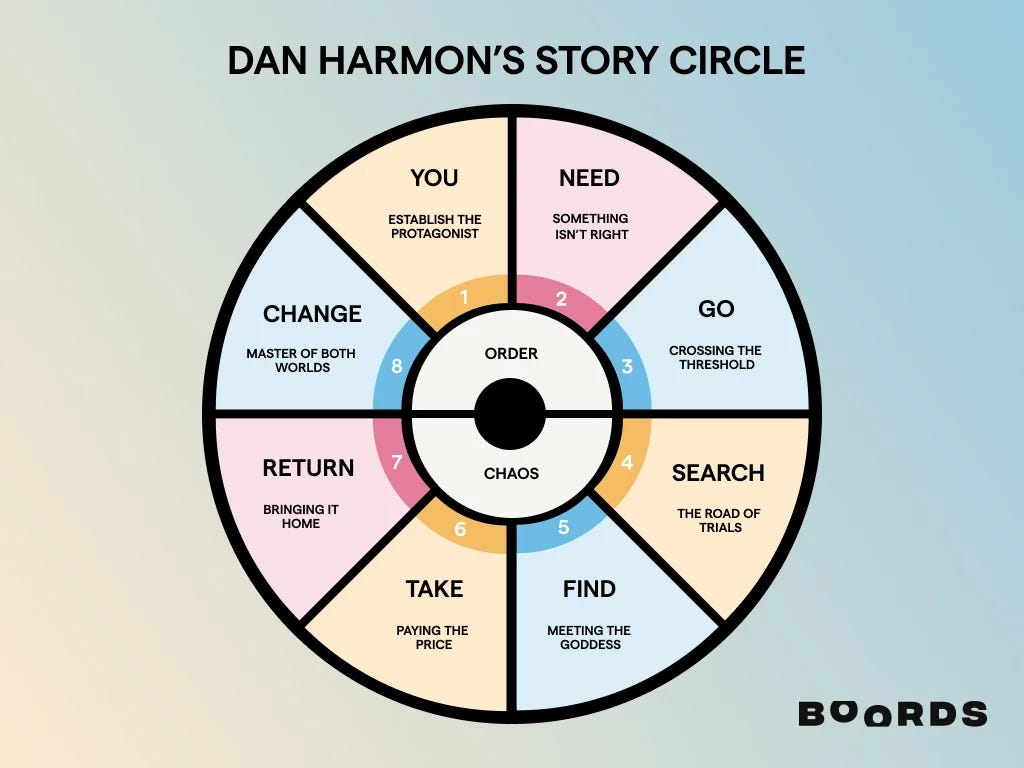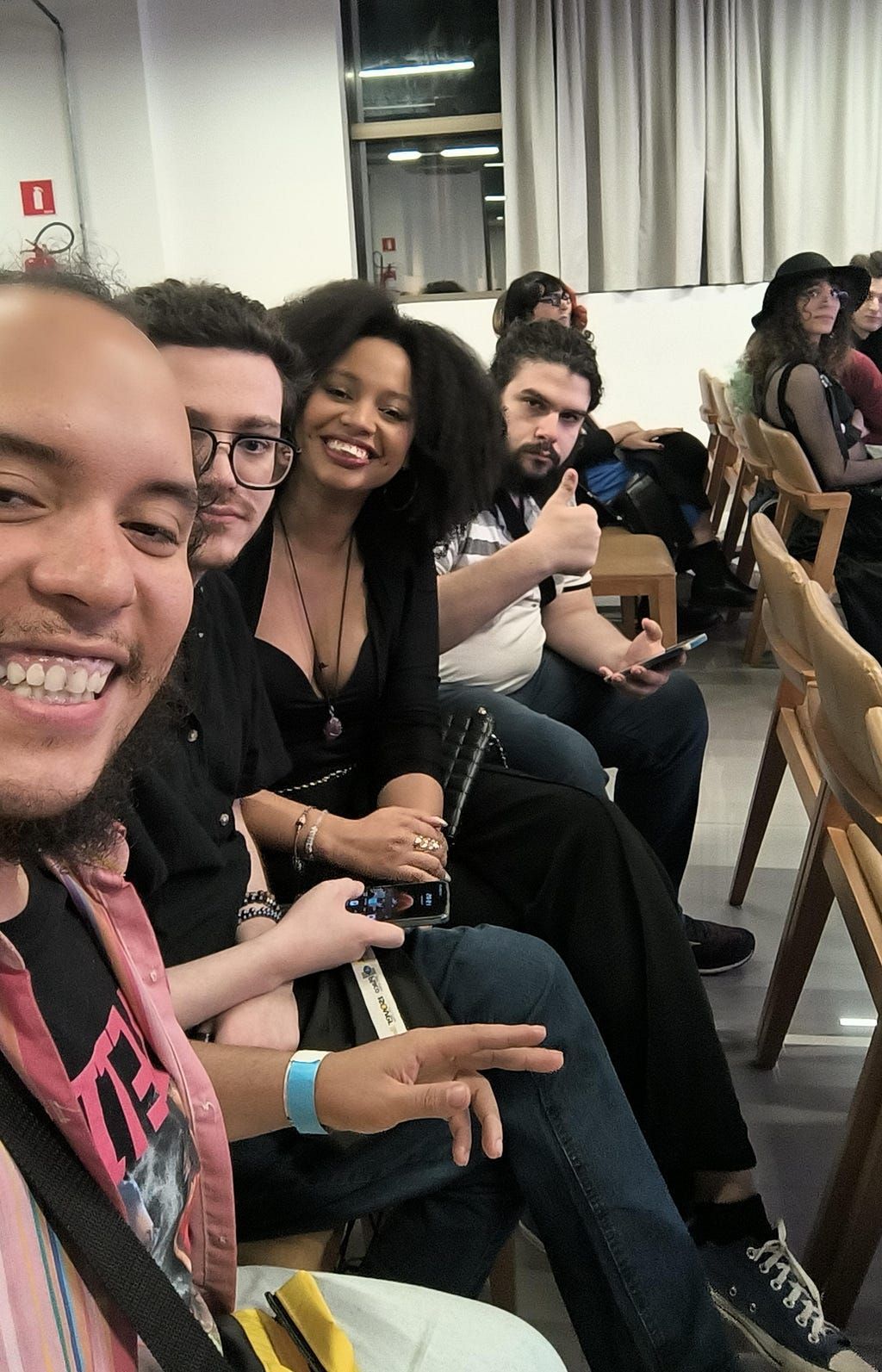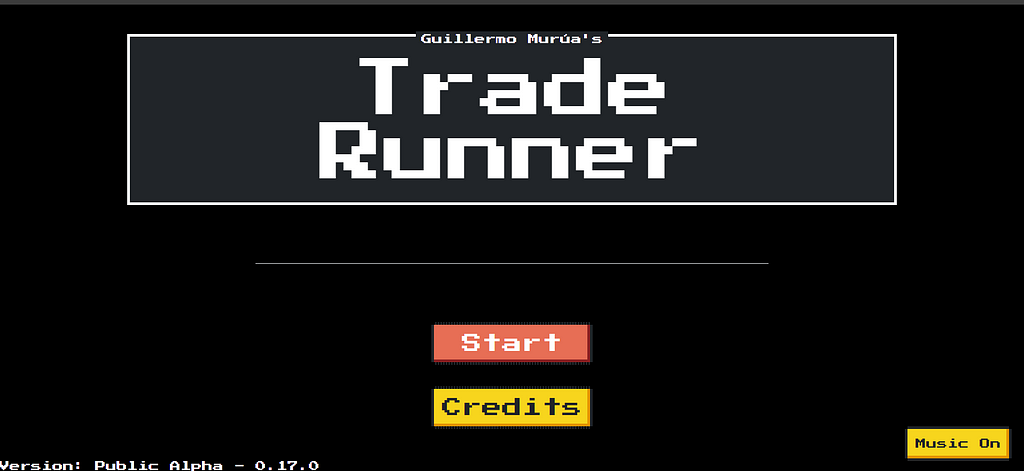RE: Writing for Video Games
On our last post we somewhat sneakily announced our first game:
Trade Runner
(
and you should give it a read here to know how I made the first prototype
). Now, that the initial version of the lore and characters has reached a good point of maturation (now worries we’ll share some of the work with you pretty soon) our resident writer and full-time otaku Kaique Santhiago, shares some of the unique challenges he faced while writing for a commercial game for the first time in his life.
Without any more delays, please, Kaique, take it away!
Hello everyone!
I’m writing this to tell you that writing a story for a game is a lot harder than writing an email. This may be a shock, but somewhere deep inside my heart, after a few years of working as a professional lawyer — drafting agreements, emails, client reports — I thought to myself that writing stories would not be so different because it’s all about putting words on the screen, right? Well… I was definitely wrong.
When you delve a little into creative writing, especially when it comes to writing a short story or a novel, you get all these pointers regarding preparation: narrative structure, plot, story arcs, a character’s perspective regarding a central theme, and such.

All of this in seemingly ethernal preparation to start writing a scene, establishing your story beats, and finally, wirting the story you envisioned.
The thing about writing for games, though, especially a game with branching storylines and simulated events like Trade Runner , is that the story is not all yours to tell.
It’s sort of like fishing…
… with multiple fishing rods.

To give a better perspective, we worked on a character that I really enjoyed, but the stories I want to tell about him will probably not unfold exactly like I want them to.Sure, he has a cool background and origin story, a unique perspective among the cast, and a really cool set of quests that revolve around his plans and ambitions to go with them. You know, our hook.
Still, the player might choose not to engage with any of that and just kill him. For cash or sport (it’s the apocalypse, baby!). Worse still: they might even engage with them but at a point in time where his secrets and lore are much less relevant and less impactful — or his loot and not even worth the bloodshed. If you ever ran a D&D campaign, you are either deeply empathizing or reaching for the tab close button out of latent untreated trauma from dealing with the murderhobo PCs.
However, what I have to come to peace with as a writer is that, although my prose, structure and drama are very much welcome in a game project — especially one such as Trade Runner — , they are not the star of the show. (Editor’s note: John Carmack famously said in Masters of Doom that plot serves to videos games the same role it serves porn )
They are just one of many hooks.
Players are as likely to be drawn to them as they are to gameplay, music or even the UI. And it took me realizing that all rods stem from the same boat are bringging the same fish home.
A friend of mine once put it in another way: writing for games is like preparing to write a novel that you will never truly write. All the assets, all the beats, and all that witty dialogue that you so desperately want to share with the world are always there at the disposal of the player to feel and experience — at their own pace. Which is not a bad thing, it actually adds a layer of depth and unpredictability that traditional storytelling doesn’t offer.
In video game writing, you have to consider multiple narratives and outcomes. You’re crafting a world where the player is an active participant, not just a passive observer. This means your characters need to be robust enough to withstand the player’s choices, your plots need to be flexible, and your themes need to resonate regardless of how the player engages with the game.
It’s a humbling experience to realize that you can’t control every aspect of the story. Instead, you provide the tools and the playground for the player to create their own experiences. This collaborative form of storytelling can lead to moments that are more impactful than anything you could have scripted on your own.
So yes, writing for video games is a lot harder than writing an email. I also hope to get better at these kinds of posts so I can bring better insight for you guys. In the coming months I’ll talk about things like worldbuilding, character design and all of that stuff we have been working on but I’m not quite there yet.
One hook at a time.
Best regards,
Kaique Santhiago
And to cap off this post, I’d like to share some great news about our studio’s website checkout muruamedia.com and catch some exclusive content for our upcoming game Trade Runner (steam page link coming soon) and follow us here on medium for our latest updates.



